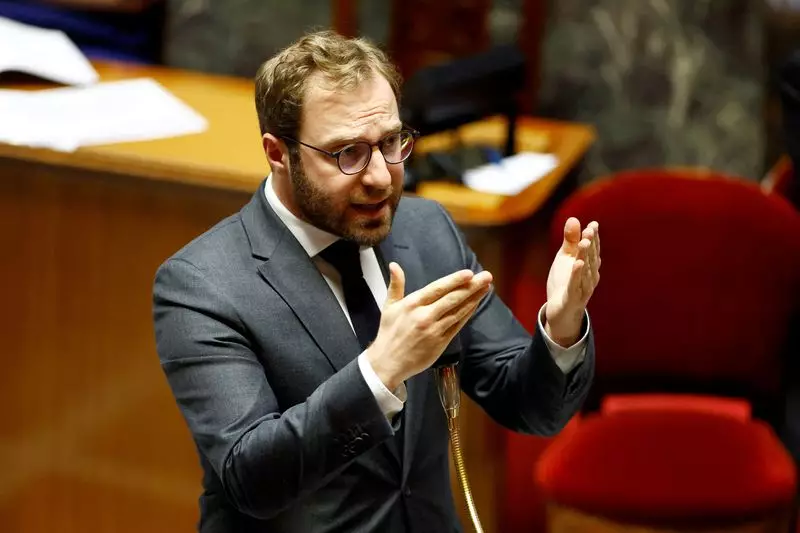France stands poised at a precarious intersection of political turmoil and economic challenges. Recent statements from Finance Minister Antoine Armand illuminate the unease gripping the country. As discussions swirl around potential no-confidence votes against Prime Minister Michel Barnier’s government, both the public and financial markets are apprehensive. With rising budget deficits threatening economic stability, Armand stressed the importance of political accountability in these turbulent times during an interview on France 2 TV.
The Implications of a Potential Government Collapse
If Barnier’s government, characterized by its fragile coalition, fails to withstand the impending no-confidence motions, France could face a significant political vacuum. Such an outcome would mark a historic moment as it would be the first time since 1962 that a French government is toppled by a no-confidence vote. The ramifications extend beyond national politics; a government collapse could destabilize Europe, particularly as Germany navigates its own electoral uncertainties. Furthermore, this political upheaval occurs against the backdrop of a shifting global landscape, as the United States prepares for the return of President-elect Donald Trump.
At the heart of the matter lies Barnier’s contentious budget proposal, which aims to address France’s surging public deficit through significant financial reforms amounting to €60 billion in tax increases and spending cuts. This budget has galvanized fierce opposition from various political factions. Both left-wing and far-right parties have united in their criticism, expressing widespread discontent among the electorate. National Rally leader Marine Le Pen has emerged as one of the loudest critics, indicating that her party would support a no-confidence motion put forth by leftist coalitions. This extraordinary alliance reveals the depths of frustration among voters, as Le Pen boldly articulated, “The French have had enough.”
Should the no-confidence vote succeed, Barnier will be compelled to resign, potentially leaving President Macron to navigate a complex political landscape in search of a new prime minister. This could result in a caretaker government, which would be limited in its capacity to implement substantive reforms. Interestingly, even as the government struggles with its internal discord, there exists a legislative timeline: any budget must be adopted by December 20, or the caretaker government will have to rely on emergency legislation to maintain current spending limits.
France finds itself in a complex web of political risk and economic necessity. The potential collapse of Barnier’s government amplifies the urgency for political stability in a nation already navigating treacherous waters. As leaders grapple with these challenges, the responsibility lies with them to forge a path that seeks a balance between austerity and the public’s growing demands for change. This pivotal moment not only defines France’s immediate future but also sets the stage for a broader conversation about governance, accountability, and resilience in the face of crisis.

